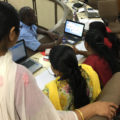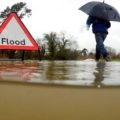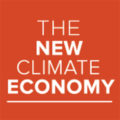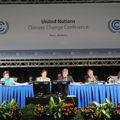Case Studies
The mission of the ESRC Centre for Climate Change Economics and Policy is to advance public and private action on climate change through rigorous, innovative research into economics and policy.
The Centre engages with decision-makers in the public, private and third sectors about its research to promote informed actions on climate change.
These engagements usually take place over many months and years and involve meetings, conferences, seminars, the production of policy reports, and many other forms of outreach.
We provide here some case studies illustrating the engagements that the Centre has undertaken with decision-makers about key issues in climate change economics and policy.
New studies being conducted by CCCEP researchers in Leeds seek to examine and ultimately improve the co-production of climate knowledge. The project, conducted by Dr Meaghan Daly and led by Prof Suraje Dessai, compares Regional Climate Outlook Forums in South Asia, southern Africa and the Mediterranean, looking at the way national, regional and international climate experts […]
Researchers in CCCEP, led by Professor Andy Gouldson at the University of Leeds, are helping cities to switch to low-carbon development paths, both in the UK and internationally. More than half the world’s people now live in urban areas, and cities account for nearly three-quarters of the world’s energy-related greenhouse gas emissions. Forecasts suggest the […]
Uncertainty about the regional impacts of climate change and rapidly changing socio-economic conditions make long-term planning of water resources problematic. Robust Decision Making (RDM) approaches seek to identify strategies that work reasonably well across large ranges of uncertain future conditions. This research project will use the RDM approach to study water resource planning under uncertainty […]
The Stern Review on the economics of climate change (2006) estimated the total cost of unmanaged climate change to be equivalent to a one-off, permanent loss of at least 5 per cent, and perhaps as much as 20 percent, in global mean per person spending in today’s money. The damage caused by each extra tonne […]
Some of the world’s most vulnerable people and ecosystems exist in dryland regions. At the same time, widespread declines in the benefits that the land provides to society are contributing to poverty, food insecurity, reduced access to clean drinking water and the loss of options available to dryland communities to cope with the effects of […]
Dr Swenja Surminski and her colleagues at the ESRC Centre for Climate Change Economics and Policy have been investigating efforts by the UK Government and the insurance industry to reform flood insurance in the UK, and ensured that plans for a new scheme have taken into account the impacts of climate change. In 2013, the […]
Nicholas Stern (Co-Chair), Dimitri Zenghelis (Acting Chief Economist) and other members of the ESRC Centre for Climate Change Economics and Policy made significant contributions to the inaugural report of the New Climate Economy project by the Global Commission on the Economy and Climate. The Commission’s report, ‘Better Growth, Better Climate’, was originally conceived as a […]
Researchers at the ESRC Centre for Climate Change Economics and Policy have explored pathways for annual emissions of greenhouse gases that will allow the world to avoid dangerous climate change. The research by Professor Lord Stern of Brentford, Dr Nicola Ranger and Dr Alex Bowen was extremely influential in informing the United Nations climate change […]
Dr Luca Taschini and his colleagues at the ESRC Centre for Climate Change Economics and Policy have been studying carbon markets associated with ‘cap-and-trade’ systems around the world. The first major, and largest, ‘cap-and-trade’ system was launched by the European Union in 2005. Although the European Union Emissions Trading System (EU ETS) has successfully helped […]







